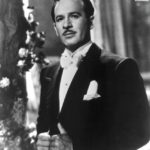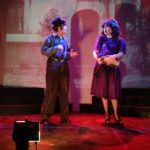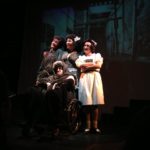As part of the Bellini Colloquium series for spring 2017, Prof. Christina Baker shared her research with colleagues and students. On April 20, Prof. Baker presented a talk entitled “(Re)EnActments of Belonging: Performances of Mexicanidad in Cabaret and Film.”

Prof. Baker’s presentation focused on how the Mexican contemporary cabaret group, Las Reinas Chulas, uses performative means to critique definitions of mexicanidad (or, Mexicanness) proliferated by Mexico’s Golden Age Cinema (1930-1960) and its on-screen idols. Prof. Baker explored how a particular piece re-enacts one of Mexico’s most successful films of all time, Nosotros los pobres (1948), and its lead actor, Pedro Infante (Think Clark Gable and Gone With the Wind). The piece she analyzed was Nosotras las proles, which she saw performed live in 2013 by the cabaret group. The piece, as indicative by the title, is a play on words, but also a critique of articulations of Mexicanness, belonging and state policies. In the piece, by absenting Pedro Infante from his quintessential role, coupled with his melodramatic confession of homosexuality, Prof. Baker engaged with queer studies to propose this piece drags and reorients masculinity, heterosexuality, and the family unit. Prof. Baker’s engaging talk generated a lively discussion.

The Bellini Colloquium is a lecture series sponsored by the Department of Modern Languages and Literatures. It is named after the first Professor of Modern Languages at the College, Carlo Bellini, a native of Florence, Italy and close friend of Thomas Jefferson. Bellini taught French and Italian from 1779 until 1803, and holds the distinction of being the only Professor to stay in residence at the College when classes were suspended for two years during the Revolutionary War.
***




